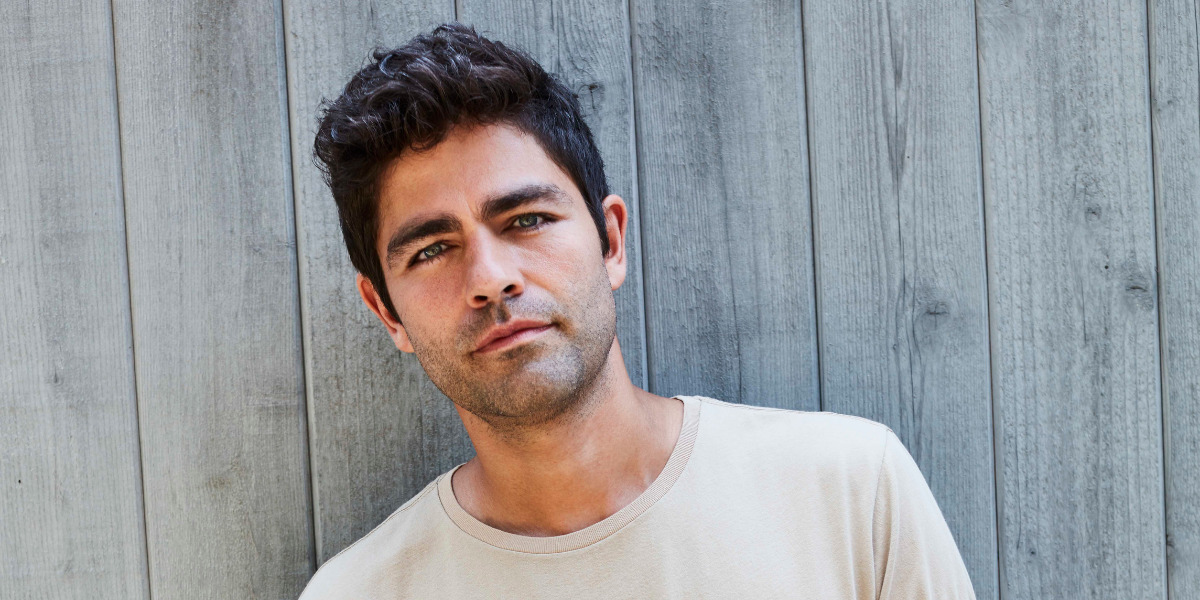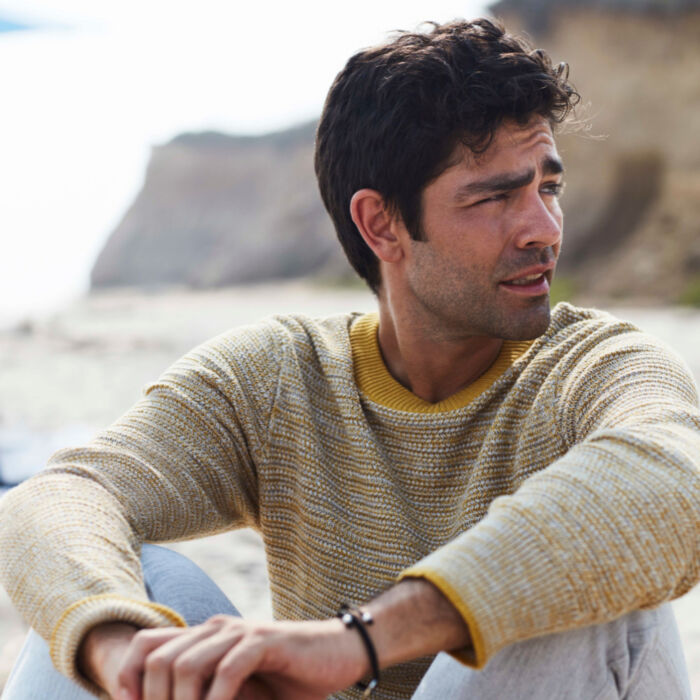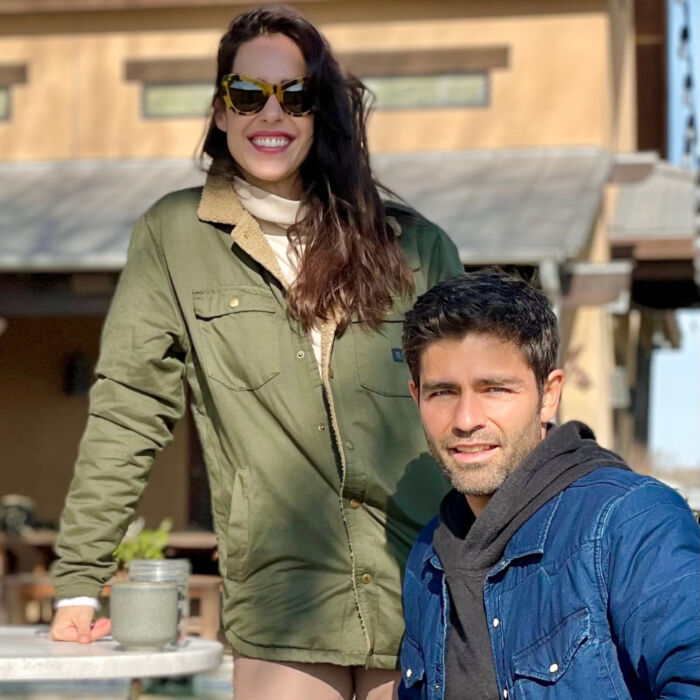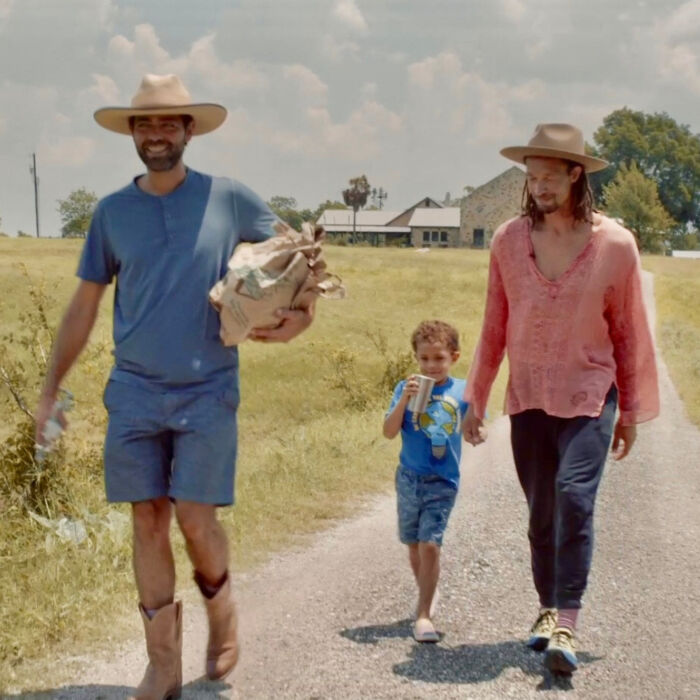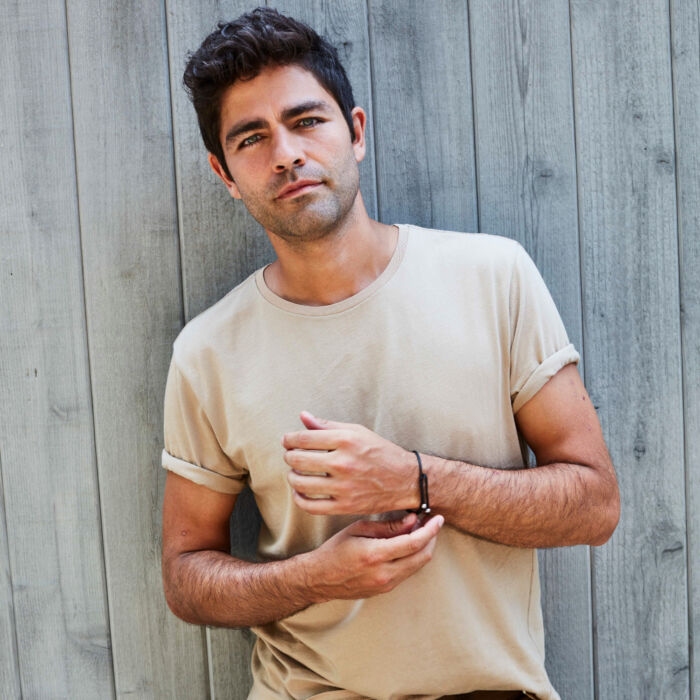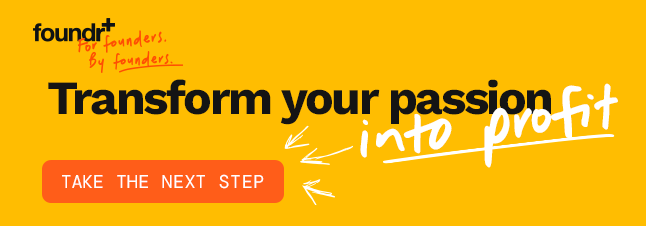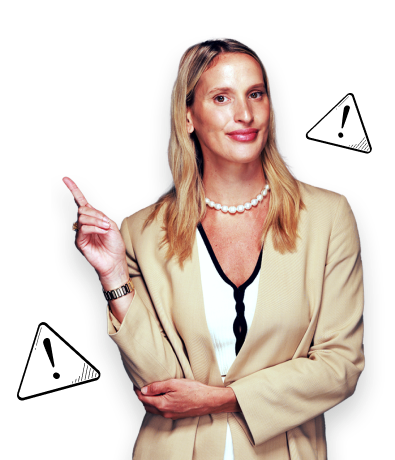You probably recognize Adrian Grenier’s face from his role as Vincent Chase from Entourage or opposite Anne Hathaway as the loyal boyfriend in the eternal The Devil Wears Prada. But you might not recognize him as an investor, entrepreneur, and farmer.
After growing disillusioned with the glare of Hollywood lights, Grenier gave it all up to build a legacy that would sustain after the cameras cut and accolades ended.
In 2019, alongside his co-CEO and founder Bia Carminati, Grenier launched DuContra Ventures, which brings investors, entrepreneurs, and thought leaders together to create a yield beyond money.
DuContra has invested in 20 businesses across finance, health, water, and food verticals. In 2022, Grenier came back in front of the camera and launched Earth Speed Media, a nature-based lifestyle brand that celebrates the power of community and self-reliance.
His new outlook on business and life starts early each morning when he wakes up at sunrise to deal with chicken s***.
Running From the Pack
Wearing a sweat-soaked linen shirt and a wide wicker hat, Greiner adjusts his iPhone to get the right angle.
Today, on his farm on the outskirts of Austin, Texas, no assistants rush around with updated schedules, no makeup artists touch up his forehead, and no DPs direct him to hit the right mark. On this scorching hot day, Grenier hits record alone with his million-dollar smile beaming at the lens.
In the video, he explains how he’s building the foundation of his first-ever chicken run. The project is part of Grenier’s never-ending list of tasks for managing his acres of Hill Country farmland.
“Those chickens deserve a run, and now they’ve got it,” Grenier says to the camera as a purple dusk shrouds the barely visible enclosure.
Greiner bought his first plot of farmland in 2016 and has been expanding it since. His wife, Jordan Greiner, named the farm “Kintsugi” after the Japanese method of repairing broken pottery with gold.
Greiner’s favorite spot on the farm is a seat in his vegetable garden. “It’s just a great little chair that when I’m sweating too much, I just kick my feet up and sit under the palm tree,” Grenier says.
Grenier is busier than ever—but a different type of busy than what he grew accustomed to in show business.
For more than two decades, he paid his dues in the Hollywood entertainment machine as an actor, producer, and director. But over the past five years, Greiner’s IMDb profile has grown sparse.
That’s due to a radical change in his lifestyle.
The shift started almost a decade ago when Entourage, HBO’s raunchy buddy-comedy, wrapped its final season. Grenier played the lead character, Vincent Chase, alongside an ensemble cast that received multiple Emmy nominations. Fittingly, the plot of Entourage centers around Chase, a rising movie star, and the antics of his pack of power-hungry minions.
Just like his character, Grenier struggled to match the pace required by stardom, which included traveling across the globe, parties, events, and paparazzi. Even shifting behind the camera as a producer and director didn’t quell the pressures of working in an industry that feeds the now and consistently asks, “What have you done for me lately?”
“As youngsters, we tend to be a little bit myopic and laser focus on … status—finding your place in society and climbing the ranks socially and making money,” Grenier says.
“I wanted to breathe every day.”
In 2016, Grenier bought a 1967 Red Dale camper on Craigslist and drove 1,300 miles from Los Angeles to Austin. He bought a small plot of land on the city’s outskirts and parked his trailer with a plan to live off the land. Then, for a year, he experienced what he calls the “dark night of the soul.” The year became a series of personal and professional introspections focusing on slowing down and connecting with the earth. He emerged from that year a different person.
Greiner’s retreat from Hollywood was unique for someone with a syndicated hit show and multiple films rewatched by loyal fans. But don’t let the charming playboy nature of his most iconic role fool you. Greiner’s always been a rebel.
Selling Swill and Failing Slowly
Grenier calls himself a through-and-through New Yorker. Even though he was born in New Mexico and spent most of his career in Los Angeles, he credits the Big Apple for his formative years as an artist.
“I spent many years as a punk rebel in New York, playing in bands, making indie films, doing everything that I could to not make money, like everything in my power to do the opposite of making money,” Grenier says. “And I was hugely successful in that [laughs].”
But eventually, a hungry belly motivated Grenier to move. So he shipped out to the West Coast, where he quickly started getting roles in movies, on TV, and even an appearance in a Britney Spears music video. Then in 2004, he was cast in the Mark Wahlberg-produced HBO show Entourage, transforming his rebellious reputation into bona fide stardom.
Acting success allowed him to commit to personal projects between shooting seasons of Entourage and feature films. The projects included starting Reckless Productions, which produces documentaries around social change, and evolved into dabbling in entrepreneurship and investing, particularly in the tech space.
Grenier began investing in small projects primarily based on personal connections with founders. Many of them failed, and he learned the danger of naive commitments.
“I was in it more for the ideas, and I was easily swayed by the vision of the founder,” Grenier says. “As a creative person, when someone tells me a story, my brain lights up, and I can imagine it, and I seduce myself. I’m almost complicit with the founder in making me believe in the thing versus being more skeptical and poking holes.”
Eventually, Grenier got the itch to get his hands dirty with entrepreneurship. Instead of investing in an idea, he wanted to build a business from scratch.
In 2012, he co-founded a microbrewery called Churchkey Can Company.
“I remember my agent called me, and he’s like, ‘Oh, you bastard, you’re going to be a billionaire from beer, not acting,’” Grenier says. “Everyone loved this company.”
Churchkey brought back the flat-top tin beer cans popularized in the mid-20th century.
“They were basically oil cans that were tough. You couldn’t squeeze them, and you had to crack them open,” Grenier says. “And so we had this old hipster sort of nostalgia.”
The beer was marketed as a premium product with a microbrewed, triple-hopped, filtered pilsner inside the throwback cans.
Grenier quickly learned that starting a business—particularly in the competitive beverage space—is hard. “The beer beverage business … is a pennies game,” he says.
“You’ve got to sell a lot of this swill to make any money.”
Accordingly, the first problem Churchkey faced was pricing. In an effort to tap into nostalgia, the microbrewery backed itself into a corner, competing against the largest breweries in America that had sold the same flat-top beer cans half a century ago. But Churchkey’s break-even six-pack price couldn’t compete with a similar-tasting pilsner from industry behemoths like Anheuser-Busch, Pabst, or MillerCoors.
“The real, fundamental reason why it didn’t work was we had some canning problems because we were essentially reinventing the can because the whole of the beverage industry had moved toward standardization around aluminum stay tabs,” Grenier says. “It just was cost-prohibitive considering our margins and the beer industry.”
Even though Churchkey had regional popularity in the Pacific Northwest and became a best-seller at Whole Foods, it wasn’t enough to keep the business afloat.
“I think I lost 10 pounds when that business went under,” Grenier jokes. “So that’s how much fun weight I had gained.”
Grenier says Churchkey taught him about the danger of “slow failure.”
“When you fail fast, you learn, and then you adapt. But [for] those of us that refuse to fail, we don’t want to fail, so we hold on to failure.”
He describes the feeling of slow failure like hitting rock bottom, sliding, and scraping your face on the stone.
“It took us like two years to finally accept that it was over. I did not take it well. I did not want to fail,” Grenier says. “You could keep pouring money into it and borrowing money and trying to save face, salvage a dream, but you could prolong agony.”
Through his experiences with Churchkey and other failed ventures like the app Popcorn, Grenier realized that he needed to be more cynical when approaching business ideas.
“You’ve got to learn to poke holes and kill your darlings, and there’s a difference between a great idea and a great business.”
After a bleak break into entrepreneurship, Grenier found himself parking a retro trailer on a patch of land in Texas. He’d left his old life, and he was about to transform into a different type of artist and entrepreneur.
A Rebellious Ally
After two decades in Hollywood, dabbling in investing and seeing the highs and lows of entrepreneurship, Greiner found that the vicious nature of his life wasn’t sustainable.
“I always felt bad for those business people who were so cutthroat and were battling it out in the boardroom because I feel like there’d be very little trust,” Grenier says. “Because when you’re swimming with sharks, and you’re a shark, that’s just the life you’ve built.”
In Austin, Grenier was growing a shark-free life.
He got involved in environmental work, helping start Lonely Whale, a nonprofit community that strives to prevent plastic waste from entering the earth’s oceans. On panels and press junkets, he’d focus his conversation on the environment, self-empowerment, and earth-empowerment. In 2018, Grenier’s advocacy earned him the title of United Nations Goodwill Ambassador, a position he holds today.
Meanwhile, his trailer lifestyle had transformed into a farm lifestyle. Grenier had permanently moved to the Lone Star State and hoped to share his vision for a collaborative community centered on the land. And he wanted his investments to reflect the purpose of his day-to-day life.
That’s when Bia Carminati became the collaborator Grenier needed.
“She reached out to me a few years ago because she has a family office where she represents people of influence with a global or a public presence, and she wants to help them align their investments with their values—which, of course, I was perfect for,” Grenier says.
While Grenier transitioned to his earth-centered life in Austin, he and Carminati continued developing their relationship, which eventually led to the launch of DuContra Ventures in 2019. “DuContra” comes from the Portuguese word that means “rebel” or “in opposition or contrast to.” The company blends impact investing with transformative experiences and personal development.
The partnership has allowed Greiner to pursue the projects he loves while protecting his admitted whimsy for human-centered stories.
“She helped me formalize my ragtag arbitrary shoot-from-the-hip investments and make it into a formal business thesis that we could actually raise money against,” Grenier says.
When Grenier and Carminati meet with potential business partners, they focus on the human before the business.
“You meet the human before you make the deal, as opposed to a lot of times it’s the deal at all costs,” Grenier says. “I’ve recognized over the years that there’s smart money, and then there’s easy money, and then there’s heart-centered money.”
He describes heart-centered money as investing in people committed to long-term growth compared to easy money, which is fickle.
“Easy money is often very dangerous money because it always comes to bite you in the a**,” Grenier says.
“Easy money is often very dangerous money because it always comes to bite you in the a**,”
While the business side of Grenier’s life became balanced, his desire to tell stories he’d forged as a reckless artist in New York never left him. In 2022, he launched Earth Speed Media, which chronicles his quest for self-improvement while highlighting topics focused on improving the world.
“I have a platform that sort of spans pop culture and modern culture,” Grenier says. “So I thought, ‘Well, hey, I could maybe bridge the gap between those two worlds and make something extremely accessible and modern and open.’ … I found the maturity enough to bring it all into sort of resonance where I can now invest […], and I can really focus on the big picture, which is mission-aligned vision and values.”
“I can really focus on the big picture, which is mission-aligned vision and values.”
Earth Speed’s content is streaming on YouTube and Instagram. It includes interviews with thought leaders such as Dr. Zach Bush, founder of Farmer’s Footprint, Queen Diambi of the Democratic Republic of Congo, and author Simon Sinek. Grenier also features the businesses he’s invested in, including Heart Water, Producers Market, and World Tree. The episode topics center on a separate issue facing the earth, such as nutrition independence or regeneration, all set on location at his homestead in Texas.
Throughout his career, Grenier has always returned to his instinct to go against the norm. Even in the face of global stardom, he reached for a different life, a different speed—one that elevates his artistic and entrepreneurial vision.
“I didn’t want to be so fast-paced and always on the go without taking time to really take in my life in the world and see how I can be of service to someone,” Grenier says. “Like [a] ‘wake up and smell the roses’ type perspective. But this time, I’m actually growing roses.”
